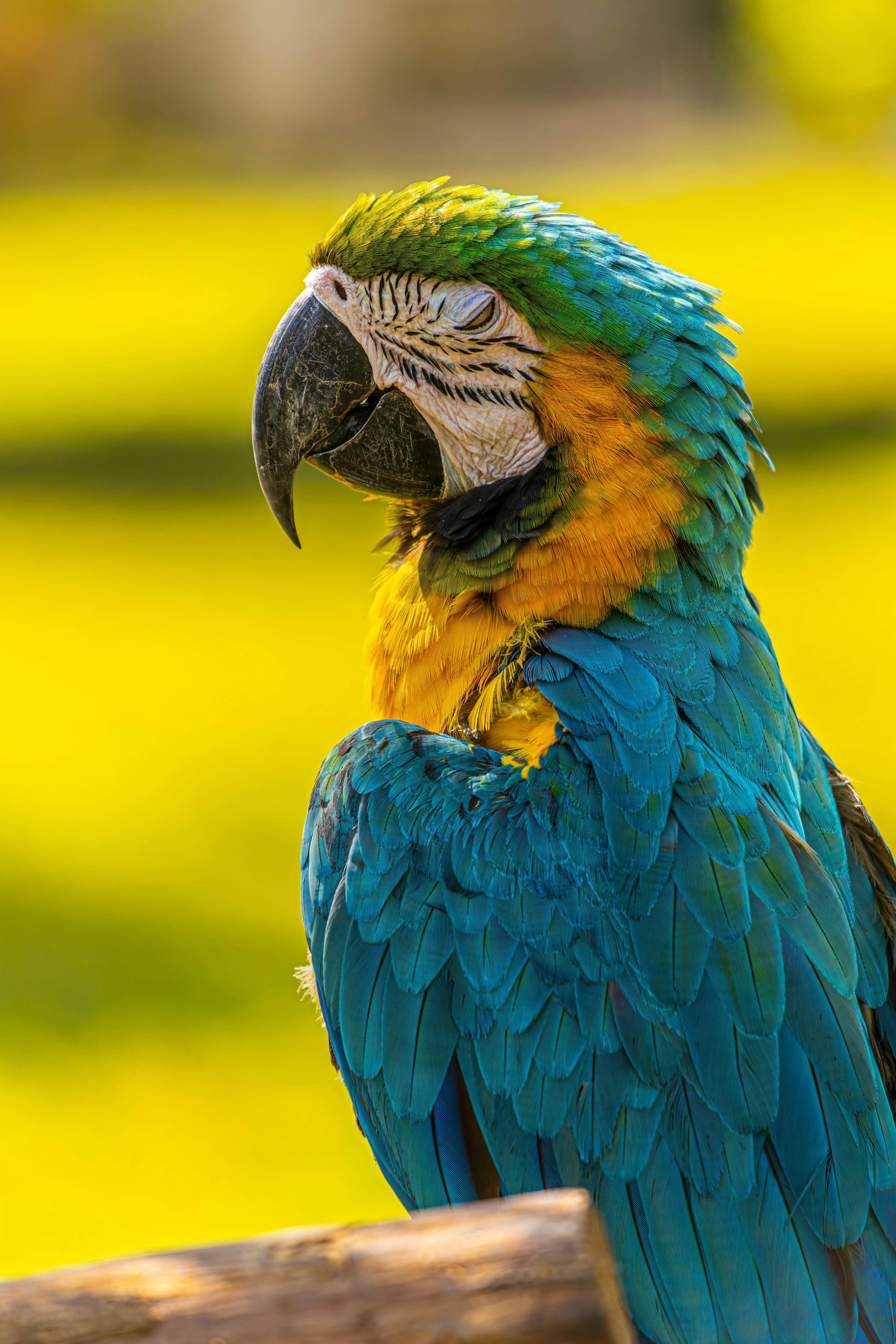Essential Guide to Dwarf Hamster Diet: Proven Tips for 2025

Comprehensive Guide to Dwarf Hamster Diet: Essential Tips for 2025
Dwarf hamsters are small, adorable pets that offer companionship and joy to many households. Understanding their dietary needs is vital for their overall health and well-being. This guide serves as a comprehensive resource covering every aspect of the dwarf hamster diet, including the types of food they need, safe treats, nutritional requirements, and proper feeding schedules. Whether you are newly introduced to dwarf hamster care or seeking to update your knowledge, this article will provide essential tips for 2025 and beyond.
A balanced diet for your dwarf hamster includes high-quality pellets, fresh vegetables, fruits, and occasional treats. Understanding the best foods for dwarf hamsters promotes not only their physical health but also their behavioral well-being, making them happier pets. In this article, we'll delve into various aspects of hamster nutrition, from the best hamster pellets to safe snacks, and address common dietary concerns. By following these guidelines, you'll be well on your way to ensuring your hamster thrives.
Key Takeaways:
- Understanding fresh vegetables and fruits safe for hamsters.
- The importance of high-quality hamster pellets and dietary variety.
- Safe snacks to offer and what to avoid.
- How to create a balanced feeding schedule for your dwarf hamster.
Essential Tips for Dwarf Hamster Diet
Understanding Hamster Nutritional Needs
The foundation of a healthy dwarf hamster diet lies in understanding their specific nutritional needs. Dwarf hamsters require balanced macronutrients: proteins, fats, and carbohydrates. Each nutrient plays a vital role in their health. Protein is essential for growth and muscle repair, while fats provide energy and contribute to a shiny coat. Carbohydrates, primarily from fiber-rich sources, are crucial for maintaining digestive health.
Opting for high-quality hamster pellets is a practical approach to ensure balanced nutrition. These pellets are formulated to contain all the essential nutrients. Look for a brand that highlights its protein content, fiber levels, and absence of harmful additives. Many vet-recommended hamster diets also focus on a good ratio of fats to proteins, which is crucial for dwarf hamsters owing to their potential for obesity.
Maintaining a healthful diet also means incorporating fresh produce. Providing the right fruits and vegetables, such as leafy greens and non-starchy options, will enhance overall well-being. Be mindful of the sugar content in fruits and incorporate them in moderation to avoid potential obesity. With these nutritional foundations in place, you're setting your hamster up for a healthy and happy life.
Best Hamster Pellets and Commercial Options
A high-quality diet for your dwarf hamster should include the best hamster pellets available. These pellets are specially formulated to meet the dietary needs of hamsters, incorporating essential nutrients, vitamins, and minerals. Popular brands include Oxbow, Kaytee, and Higgins, all reputed for their commitment to pet health.
When selecting pellets, ensure they are made with natural ingredients, avoiding fillers like corn or soy, which can be less nutritious. The packaging should clearly indicate the nutritional value, ensuring an adequate percentage of protein, fiber, and fat content aligned with hamster dietary needs.
Consider rotating between different pellet brands every few months. This approach enhances dietary variety, which can stimulate interest in their food while ensuring they receive a broad spectrum of nutrients. To supplement their diet, incorporate fresh vegetables and occasional fruits, creating a well-rounded nutritional regimen. Remember, moderation is key to maintaining a healthy diet.
Fresh Vegetables for Dwarf Hamsters
In addition to pellets, fresh vegetables are critical for a well-rounded hamster diet. Dwarf hamsters thrive on a variety of veggies, with leafy greens such as kale, spinach, and romaine lettuce being excellent choices. These veggies provide vitamins and fiber while keeping your pet hydrated.
Other suitable vegetable options include shredded carrots, cucumber, and broccoli. When introducing new vegetables, do so gradually to avoid gastrointestinal upset. Start with small pieces, observing your hamster's response for any signs of digestive distress. Remember, fresh vegetables should supplement their primary diet rather than replace it.
It's essential to rinse vegetables thoroughly to remove any pesticides or harmful residues. Additionally, while feeding fresh produce, avoid starchy vegetables like potatoes or corn, which can lead to obesity and digestive issues. Incorporating a diverse range of vegetables will promote healthier eating habits while keeping mealtimes exciting for your dwarf hamster.
Understanding Hamster Treats and Safe Snacks
Choosing Healthy Snack Options
When it comes to treats, moderation is key. Healthy snack options for hamsters include small pieces of dried fruits, unsweetened treats, and specially formulated hamster snacks. Sunflower seeds can also serve as occasional rewards, but beware of their high-fat content that can contribute to obesity if overfed.
It's essential to identify safe snacks and avoid unhealthy options. Processed human foods, sugary treats, and dairy products pose risks to your hamster's health and should be avoided entirely. When searching for treats, focus on natural ingredients that align with your hamster’s nutritional needs.
For those interested in DIY options, homemade treats created from oats and small amounts of peanut butter can be healthy alternatives. Just be sure to keep portion sizes minimal to maintain a balanced diet and prevent excessive calorie intake.
Common Mistakes to Avoid in Hamster Dietary Habits
While caring for your dwarf hamster, several common feeding mistakes can negatively impact their health. Overfeeding is perhaps the most prevalent issue, as many owners underestimate their pet's caloric needs. To prevent obesity, stick to recommended feeding guidelines based on their weight and age.
Another frequent error is failing to provide dietary variety. Offering a limited range of foods can lead to nutrient deficiencies over time. Regularly rotate their food types, ensuring they receive adequate fiber, vitamins, and minerals.
Additionally, neglecting the importance of hydration can adversely affect your hamster's health. Always provide fresh, clean water and monitor their drinking habits. If you’re unsure about your hamster’s hydration, consult a veterinarian for tailored advice.
Feeding Schedule for Dwarf Hamsters
Establishing a consistent feeding schedule can foster healthy eating habits in your dwarf hamster. Most dwarf hamsters thrive on a daily feeding routine, with the best practice being to offer pellets once a day, ideally during the evening when they are most active. Alongside pellets, they should be provided with a variety of fresh vegetables and treats a few times a week.
Be cautious when introducing new foods, as sudden dietary changes can lead to digestive issues. Introduce new items slowly, observing your pet’s behavior and elimination to ensure they are tolerating the changes well. For those managing a balanced diet for multiple hamsters, be sure to monitor individual consumption, as some may be more dominant than others.
Keep fresh fruits and vegetables for about 24 hours, replacing them daily to maintain freshness. Using a small, hidden bowl or foraging toys can stimulate natural hamster behavior while promoting a healthy diet.
Special Dietary Considerations for Dwarf Hamsters
Addressing Nutrient Deficiencies
Dwarf hamsters can experience nutrient deficiencies if their diet lacks variety or quality. Common issues include inadequate protein, vitamins, and essential fatty acids, which can lead to health concerns such as lethargy and coat dullness. To detect deficiencies early, observe your hamster for changes in behavior, energy levels, and appearance.
Incorporate high-quality dietary supplements into your hamster's diet if deficiencies are suspected. Consult with a veterinarian on recommended supplements tailored to your pet's needs, focusing on protein sources such as cooked chicken or eggs in tiny amounts to enhance their nutrition.
Providing a diverse diet can mitigate many nutrient deficiency issues. Include various macronutrient sources consistently to ensure your hamster experiences optimal growth and development.
Health Maintenance Through Diet
Your dwarf hamster's diet plays a significant role in maintaining its overall health. A balanced diet not only prevents obesity but also supports a robust immune system and a longer lifespan. Foods rich in antioxidants, like varied fruits and vegetables, help foster optimal health.
Monitor your hamster’s weight regularly to catch any potential issues early, such as disproportionate growth or obesity. Adjust their diet accordingly to manage their weight, providing adequate exercise opportunities through toys and playtime. Establishing proper care routines encourages healthy eating habits and a balanced hamster diet.
Understanding Hamster Foraging Behavior
Dwarf hamsters have natural foraging behaviors that can influence their dietary habits. They often prefer to engage with their food, exploring various textures and tastes. This behavior can be encouraged by dispersing food around their habitat or using foraging toys to hide treats, fostering enrichment.
Observing your hamster's interaction with different food types allows you to adjust their diet according to their preferences. This also helps prevent boredom and promotes healthy eating patterns. Always replenish their diet with small amounts of fresh offerings to encourage exploration and enhance their quality of life.
Conclusion: Promoting Dwarf Hamster Health through Diet
Understanding the dwarf hamster diet is crucial for any pet owner looking to ensure their little companions thrive. By providing a balanced selection of high-quality pellets, fresh vegetables, safe fruits, and moderation in treats, you can support their health beyond just feeding them. Be mindful of their distinct nutritional needs, including hydration and dietary variety, to ward off potential health issues.
Stay committed to monitoring their feeding habits and overall health, ensuring they have a fulfilling, healthy life as part of your family. For a closer look at nutritional guidelines and vital feeding practices, feel free to explore additional resources on hamster diet guidelines and best practices in pet care.

